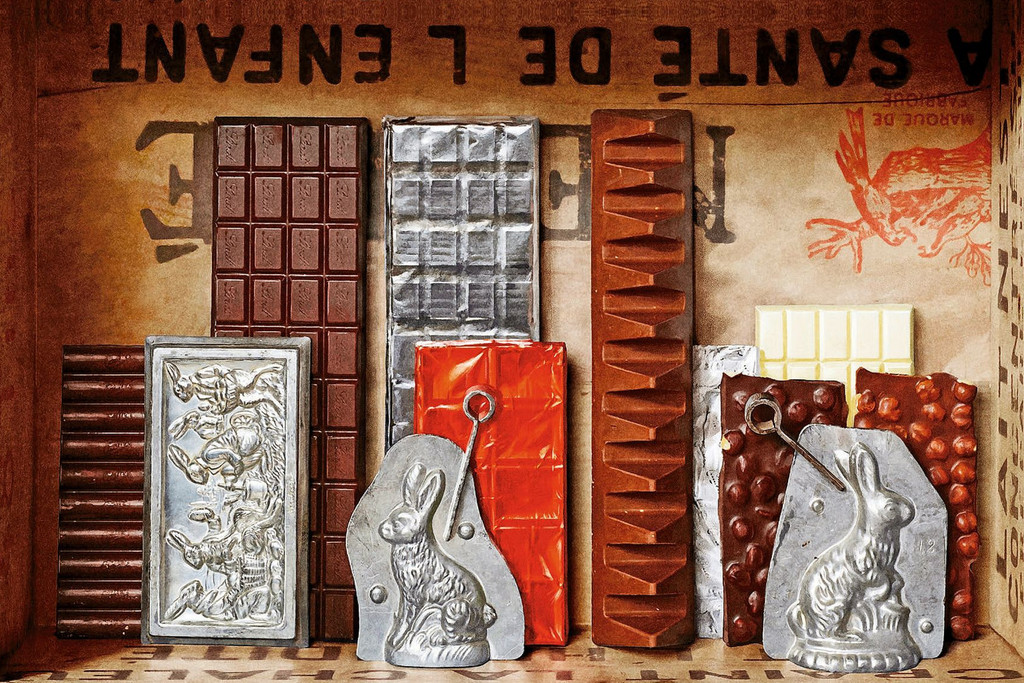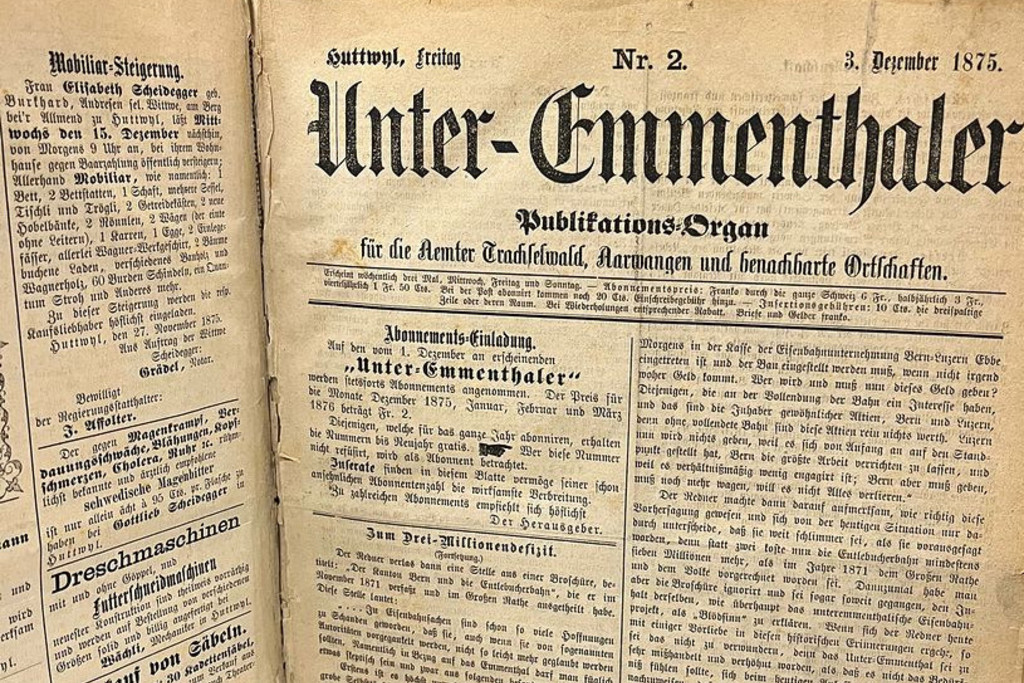It started with a video of a white police officer using brutal force that led to the death of Afro-American George Floyd in the US city of Minneapolis. The footage was shared on social media around the world. In mid-June, thousands of mostly young people took part in anti-racism demonstrations in Swiss cities. The Black Lives Matter rallies, mostly peaceful, were tolerated by the authorities despite the restrictions to stop the spread of COVID-19.
However, it was not the imported nature of the protests that was exceptional, but how quickly attention turned to the issue of everyday racism towards black people in Switzerland, even though Switzerland has never had any colonies and has never been known as a country in which the state apparatus clearly discriminates against non-whites.
“Switzerland has never existed in splendid isolation”
“I think there is a growing realisation among younger people that Switzerland has never existed in splendid isolation,” says historian Bernhard C. Schär. “Which is actually quite astonishing, given that the Swiss history curriculum still mainly takes the opposite view.” Schär, who works at ETH Zurich, is one of a group of historians who are trying to promote a critical reappraisal of Switzerland’s history in the global context.
This perspective on Switzerland that many like to ignore, is becoming increasingly popular, not least because 40 percent of people who live in Switzerland have an immigrant background. And because 70 percent of people employed by Swiss companies work abroad. “Switzerland’s story has always been more than about what happens only in Switzerland and in Europe,” says Schär. Fewer and fewer people identify with a view of history confined within Switzerland’s physical borders. Taking a more open approach to Switzerland’s past automatically involves encountering elements of colonialism and racism.
This extends to everyday life. According to a report by the Swiss Service for Combating Racism (SCRA), 59 percent of Swiss believe that racism is a serious problem in Switzerland, while 36 percent of people living in Switzerland with an immigrant background say that they experienced discrimination in the period from 2013 to 2018 – mainly in the work environment or when looking for employment.
It is also normal nowadays for young Swiss to work with colleagues who have a different skin colour. Thanks to social media too, the YouTube generation are no strangers to the issue of racism. Clips of black American television comedians such as Trevor Noah, born in South Africa to a Swiss expatriate father, are also viewed in Switzerland. Consequently, the brutal, racist circumstances of George Floyd’s death are even more of a cue to question the reality at home, given that police violence also occurs in Switzerland. In 2018, for example, a black man died in Lausanne from respiratory arrest after being pinned to the ground by police officers.
Controversial memorials
Switzerland has plenty of historical objects that would inspire the wrath of anti-racism activists. These include memorials to Swiss economic pioneers and scientists whose involvement in the history of colonial exploitation has long been swept under the carpet. Take David de Pury, who left his home city of Neuchâtel a huge fortune after his death. The merchant acquired part of his wealth by trading slaves at the Portuguese court in the 18th century. A bronze statue in Neuchâtel honours de Pury’s legacy. Following a Black Lives Matter protest, activists smeared the statue with red paint to symbolise the blood of slaves. A petition was also launched to remove the monument.
The controversy surrounding the brilliant 19th-century glaciologist Louis Agassiz, who expounded racist theories that were used by white Americans to legitimise discrimination against blacks, has flared up again after simmering for years. A mountain peak situated on the cantonal boundary between Berne and Valais is named after Agassiz. Historian Hans Fässler, who heads the Dismantle Louis Agassiz committee, has been calling for the peak to be renamed for the last 15 years. However, the three municipalities bordering the mountain have steadfastly rejected the request.
Misgivings have also centred around Zurich entrepreneur Alfred Escher, whose well-connected family owned coffee plantations in Cuba where slaves worked. And even Henri Dunant ran his own colonial business before founding the International Committee of the Red Cross. In their book entitled “Postkoloniale Schweiz” (Postcolonial Switzerland), a group of Swiss historians document how Dunant set up a financial scheme for a Genevan grain producer in Sétif, Algeria.
According to the same book, Switzerland’s “colonialism without colonies” was beneficial not only to wealthy industrialists but to members of the middle and working classes as well – like the mercenaries who fought for the French Foreign Legion in the French colonies. Hence, the long-hidden legacy of Switzerland’s role in colonialism is an issue that transcends the rights and wrongs of knocking down statues.
The role of black people
Of greater immediacy are the recent protests that have fuelled the conversation on how institutional racism affects the lives of black people in present-day Switzerland. Most black people who speak publicly say that racial profiling by the police and authorities is an everyday aspect of their lives. A UN report has criticised Switzerland for doing too little to combat it.
Zambian-Malawian theatre artist Mbene Mwambene, who lives in Berne, says that the racism he encounters in Switzerland is different to racism in America. He calls it “covert” and based on contradictory stereotypes. On the one hand, people more or less expect him to be a good dancer because he is African. On the other, he regularly gets stopped and searched for drugs.
The Swiss police reject the accusation of racial profiling. Police officers in Switzerland do two years of basic training before entering service, during which they address fundamental principles such as respect for human rights. The head of the St. Gallen cantonal police force, Fredy Fässler (SP), says that trainee police officers are consistently reminded of the perils of racial profiling.
Black intellectuals who live in Switzerland have played a decisive role in reigniting the country’s debate on racism – personalities who together have brought the reality of the racism that they face in everyday life into the public domain. University academics such as the black Swiss anthropologist Serena Dankwa are regularly interviewed in the media. There is growing agreement with one of the key thrusts of what Dankwa is saying: that people should finally recognise there is a connection between the racist, colonial view of Africa that Switzerland also used to share and the systematic marginalisation that affects all black people today.
Jürg Steiner is a journalist and editor for the “Berner Zeitung”















Comments
Comments :
La conciencia de los hombres no ha sido siempre sensible a los mismos escrúpulos. Los escrúpulos relativos a la esclavitud fueron cambiando rápidamente a partir del siglo XIX. Se tiene la falsa idea de que un traficante era una persona odiosa y es el caso que era todo lo contrario, era la persona más respetada y distinguida dentro de la sociedad, era en lo que todo hombre quería convertirse, como hoy sueña ser, digamos, un Bill Gates.
Respecto de la Legión Extranjera, siempre habrá hombres, de todas las razas, que eligen vivir su vida junto a un Jean Danjou o un Hélie Denoix de Saint Marc.
We refer to the in-depth article by "Swissinfo" on General Sutter:
https://www.swissinfo.ch/blueprint/servlet/eng/-gold-rush--sutter-had-swiss-ties/3445562
Who knows how the future will judge us?
La jeunesse actuelle ou les journalistes en mal de copie
Oublie que nous somme tous des immigrés
Un petit rappel le dernier siècle
Italien Espagnol Portugais ou Hongrois avec qui nous avons vécu ,travailler ou encore lee croate et d'autres , après la dissolution de la Russie
Je ne cite pas les allemands ou français
Alors que nous somme raciste on pousse le bouchon un peut loin
La vie c’est un passage, Personne restera ici… N’importe quelle couleur n’importe quelle race notre vie tient un souffle. Nous sommes tous des simples apprenti prêt à partir.
Ich lebe seit Jahren in verschiedenen Orten der USA und kann bestätigen, dass die schwarze Bevölkerung seit langem unter wirtschaftlichem, ökonomischem Druck, wie auch den generellen Lebensbedingungen stehen.
Zum guten Glück haben die Minoritäten-Gruppen einen neuen Freund mit Präsident Trump. Seit Jahrzenten zum ersten Mal, haben diese Völkergruppen in allen Bereichen erhebliche Fortschritte gemacht. (jedenfalls vor der COVID-Pandemie).
Dieser künstlich erzeugte Rassismus, der durch die nicht ganz so neue Propagandagruppe BLM erzeugt wird, ist nicht fruchtbar sondern radikal und auf Karl Marx basierend. Mittlerweile wird dieses entfremdete Gedankengut in den Schulen gelehrt, die demokratisch, oder soll ich kommunistisch sagen, regiert werden.